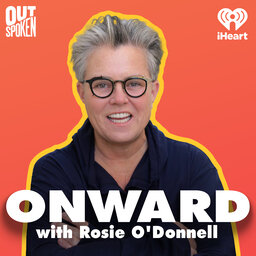Elizabeth Falkner
This week, Rosie sits down with chef and filmmaker, Elizabeth Falkner, who is a multi-award winning celebrity chef and author, a Food Network and Bravo TV regular, and has appeared as both a competitor on Iron Chef America and The Next Iron Chef, and as a judge on Top Chef Masters and Top Chef Just Desserts. She also happens to be Rosie's personal chef! Together they speak passionately about and Chef Falkner's first documentary SORRY WE'RE CLOSED, food in general, families (blood and chosen), and the actual love involved in the restaurant and service industry that very few people even notice.
SORRY WE'RE CLOSED, a film by Elizabeth Falkner and Pete Ferriero, is an insider's perspective on the state of mind of chefs, how the independent restaurant business deals with crisis, and how food systems must evolve. It's just been released on multiple streaming platforms for your viewing!LINKS TO HELP MAUI:
https://hawaiifoodandwinefestival.com/kokua-restaurant-and-hospitality-fund-for-maui/
https://www.hawaiicommunityfoundation.org/strengthening/maui-strong-fund
 Onward with Rosie O'Donnell
Onward with Rosie O'Donnell


